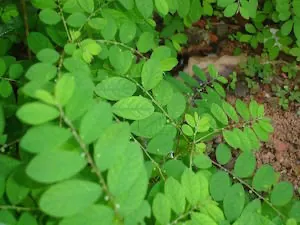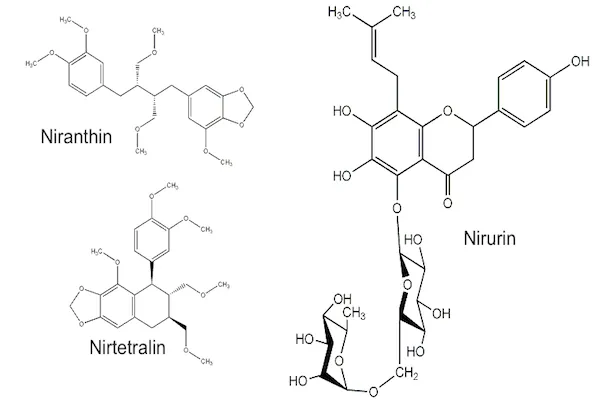Overview of Stonebreaker
Scientific Name: Phyllanthus niruri
Order: Malpighiales
Family: Phyllanthaceae
A species of Phyllanthus that is native to South and Southeast Asia. It was historically (and in some cases still is) being used to treat kidney and urinary stones. Similar to Phyllanthus amarus and Phyllanthus urinaria, this plant is also being used to treat hepatitis B and other liver problems. However, do not confuse this plant with Phyllanthus amarus and Phyllanthus urinaria.
Strong:
insufficient informationGood:
insufficient informationPromising:
insufficient informationConflicting (Unclear):
insufficient informationLimited Evidence:
- Antioxidant [1]
- Hepatitis B [2]
- Kidney Stones, improves the outcome of extracorporeal shock wave lithotripsy [3]
- Reduction of Urinary Calcium [4]
- Tonsil/Throat Infections (tonsillopharyngitis), an extract of stonebreaker with Nigella sativa [5]
No Evidence:
insufficient informationNo Clinical Research:
All other conditions.- Side effects have not been studied.
- Use caution or contact a licensed healthcare practitioner, since there is not enough research on the use of supplements containing jiaogulan.
There is not enough research on the use of supplements containing stonebreaker during pregnancy and breast-feeding, so consult a licensed healthcare practitioner before use or avoid use.
Major:
insufficient informationModerate:
insufficient informationPotential:
insufficient informationStonebreaker is not a "drug", the best doses have not been thoroughly established. Make sure to follow the specific product instructions and take as directed on the label, or consult a licensed healthcare practitioner before use.
1. Colpo E, Vilanova CD, Pereira RP, Reetz LG, Oliveira L, et al. Antioxidant effects of Phyllanthus niruri tea on healthy subjects. Asian Pac J Trop Med. 2014 Feb;7(2):113-8. 2. Wang M, Cheng H, Li Y, Meng L, Zhao G, et al. Herbs of the genus Phyllanthus in the treatment of chronic hepatitis B: observations with three preparations from different geographic sites. J Lab Clin Med. 1995 Oct;126(4):350-2. 3. Micali S, Sighinolfi MC, Celia A, De Stefani S, Grande M, et al. Can Phyllanthus niruri affect the efficacy of extracorporeal shock wave lithotripsy for renal stones? A randomized, prospective, long-term study. J Urol. 2006 Sep;176(3):1020-2. 4. Nishiura JL, Campos AH, Boim MA, Heilberg IP, Schor N. Phyllanthus niruri normalizes elevated urinary calcium levels in calcium stone forming (CSF) patients. Urol Res. 2004 Oct;32(5):362-6. 5. Dirjomuljono M, Kristyono I, Tjandrawinata RR, Nofiarny D. Symptomatic treatment of acute tonsillo-pharyngitis patients with a combination of Nigella sativa and Phyllanthus niruri extract. Int J Clin Pharmacol Ther. 2008 Jun;46(6):295-306. 6. Afendi FM, Okada T, Yamazaki M, Hirai-Morita A, Nakamura Y, Nakamura K, Ikeda S, Takahashi H, Altaf-Ul-Amin M, Darusman LK, Saito K, Kanaya S. KNApSAcK family databases: integrated metabolite-plant species databases for multifaceted plant research. Plant Cell Physiol. 2012 Feb;53(2):e1.

